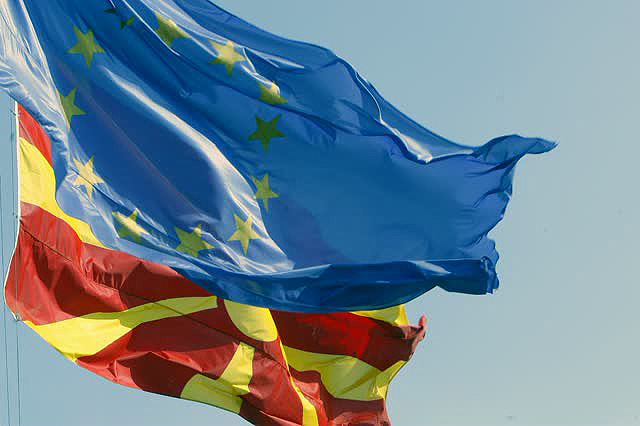The European Commission is set to publish its enlargement report, which is widely expected to approve opening EU accession talks for Macedonia, even as a growing number of EU countries oppose this move.
Enlargement Commissioner Johannes Hahn and EU foreign policy chief Federica Mogherini were outspoken supporters of Zoran Zaev’s powergrab and the Prespa treaty he signed, and are eager to reward him with opening accession talks. Zaev himself brushed off the rejection he received during last year’s enlargement report and insisted that he received EU approval that talks begin in June 2019. Greece is no longer blocking Macedonia from opening accession talks, at least in the remaining months as Tsipras is Prime Minister, but now France, the Netherlands, Denmark and even Germany object to quick opening of accession talks. France is particularly outspoken in opposition to this move, as its President Emmanuel Macron resorted to Balkan-bashing in an attempt to stop the rise of nationalist parties ahead of the European elections.
Macedonia has received half a dozen positive recommendations from the Commission in the past, but Greece, and to a lesser extent Bulgaria, used their veto power in the European Council to stop this move until they receive concessions on their national issues that target Macedonia.
Faced with the humiliating prospect of having changed the name of the country and made series of concessions to Greece and Bulgaria, and yet being left without the main prize that he promised to the people, Zaev resorted to blaming Albania. Macedonia is seen as part of a group with Albania, and Zaev insists that its the lack of progress in our western neighbor that will hold both countries back.





Comments are closed for this post.